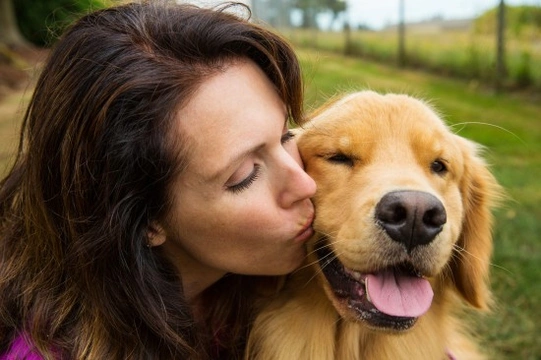
How long will it take for a dog to bond with a new owner?
One of the questions that is most commonly asked by those new to dog ownership or people that are thinking of getting a dog, is “how long will it be before my dog bonds with me?” Understandably, this is a question that it is worth knowing the answer to, in order to know what to expect, and how to promote positive bonding with your new pet. Many different factors need to be taken into consideration when working out an approximate timescale within which a new dog or puppy will bond with you... Every dog and puppy is of course, an individual with their own personality, and just as with everything else relating to dogs and canine care, there is no one size fits all answer to any question!
Bonding with a puppy
Providing that your new puppy is generally a cheerful little soul and has not experienced any negative consequences of being around people, bonding with a new puppy is generally a very quick process. Puppies have a very limited range of experience of the world to draw on, and assuming that all of their interactions with humans have been good experiences for the pup, they will generally be open, friendly and welcoming with everyone.
When you take a new puppy home at around twelve weeks of age or a little older, at first, they will be a little shy and uncertain about their new living situation, as well of course, wondering what happened to their canine family! However, handled correctly, your new puppy should begin to imprint on you and bond with you within just a couple of days, and they will also begin to bond with other household pets such as cats and dogs just as quickly.
Bonding with an adult dog
An adult dog that has always been kindly treated, got on well with their previous owners and has never been neglected or hurt by people will generally be perfectly amenable to bonding with a new family, but this process will normally take rather longer than it will with a brand new puppy.
An older dog that has already bonded with other people and gotten into a routine with them will understand the positive benefits of a relationship with people, but it will take longer to get used to the upheaval and change in their routine of being in a new home, and of course, being transplanted from one caring family to another.
Dogs that have only experienced one owner, particularly if they spent a lot of time with that person and bonded strongly with them may take longer to bond with a new family than a dog that is well socialised with a lot of people. If their previous owner left them suddenly (for instance, if they died) your new dog might spend a long time missing their prior master, and possibly pining for them, which can serve to prolong the bonding process.
Well balanced adult dogs in general can take anything from a couple of weeks up to a couple of months to bond with a new owner or family; it all depends on the individual dog.
Bonding with an adult dog with an uncertain history
One of the greatest challenges for the new dog owner can be establishing a bond with an adult dog that comes from an uncertain background, such as a dog that was abandoned and rescued.
Because you will not have the benefit of knowing about the dog’s background and what experience they have had with people previously, building a basic level of trust can take some time, before you even get as far as forming a genuine and positive bond with your dog.
Dogs that are re-homed will sometimes fall into a vicious circle of being slow to trust people and bond with them, leading to their new owners feeling that the dog is not a good fit for the family after a few weeks and returning them to the shelter. This sets up an ongoing cycle of lack of trust, abandonment and reinforcement of the lack of trust, so if you are considering taking on a rescued dog, know what you are getting into, and understand that it might take months or even over a year to work out their past issues and bond with them. However, some rescued dogs will of course have experienced happy family life, and will bond with you just as quickly as any other adult dog.
Good ways to promote bonding
Regardless of the age or personality of your new dog or puppy, there are a lot of different ways in which you can promote bonding with them and reinforce their positive experiences with you. Spend plenty of time with your dog, feed them treats by hand, and talk to them as much as possible so that they begin to associate your voice with kindness and positively. Walk them regularly, give them toys, and provide for all of their needs.
Never speak harshly to your dog or punish them negatively; work on a principle of positive reinforcement only. Also, it is important to allow your dog their space, and not push yourself into their territory or force them to spend all of their time close to you. Let them come to you in their own time, and make sure that a warm welcome awaits them when they do.



